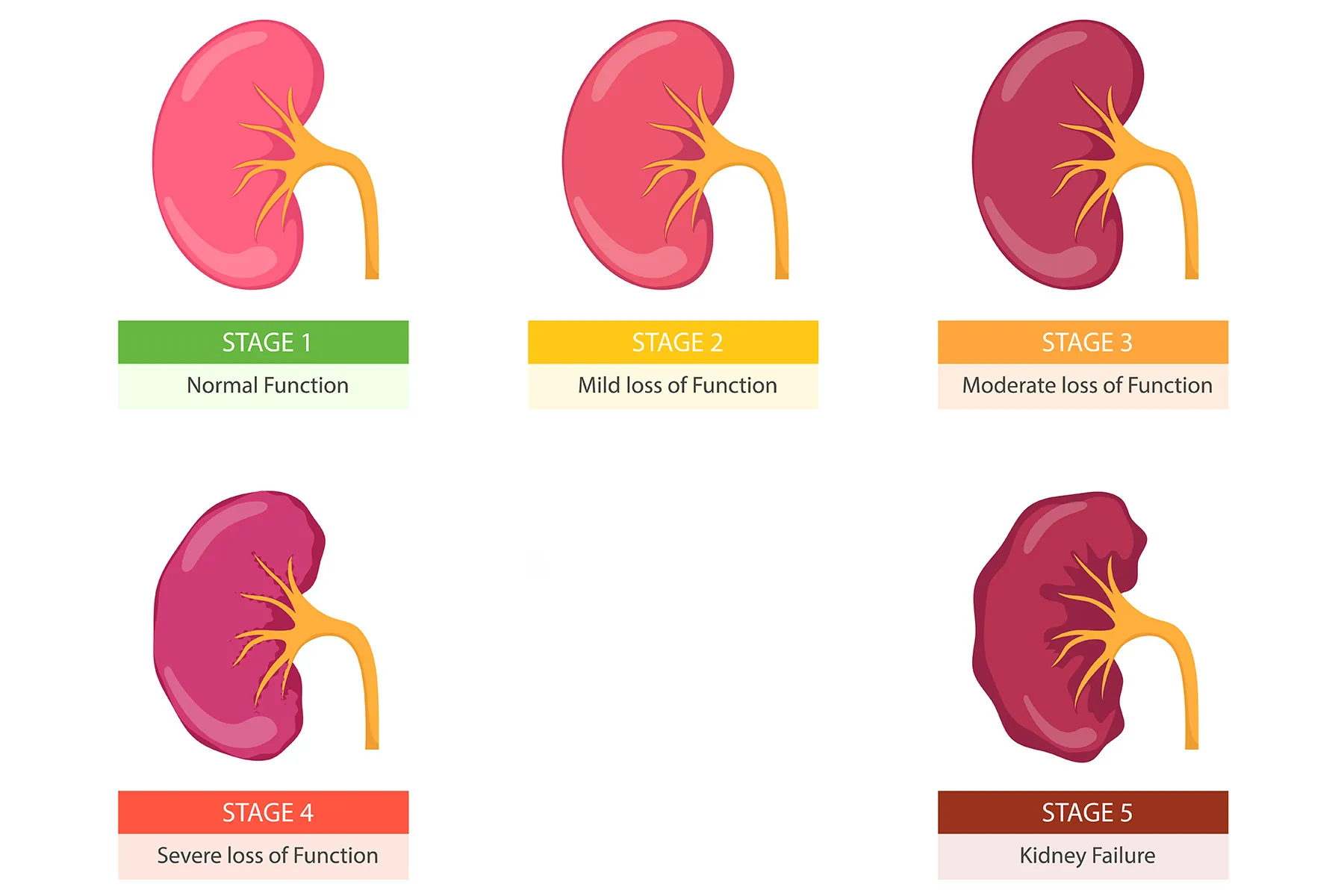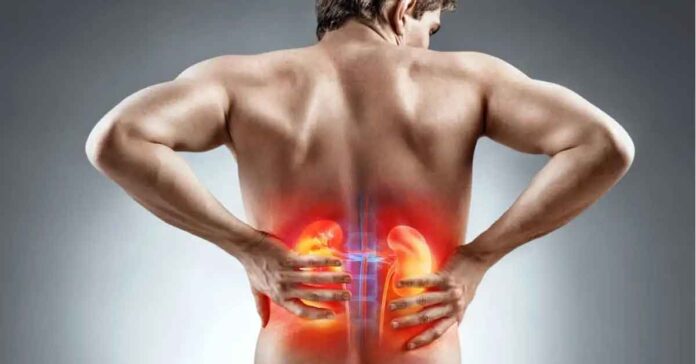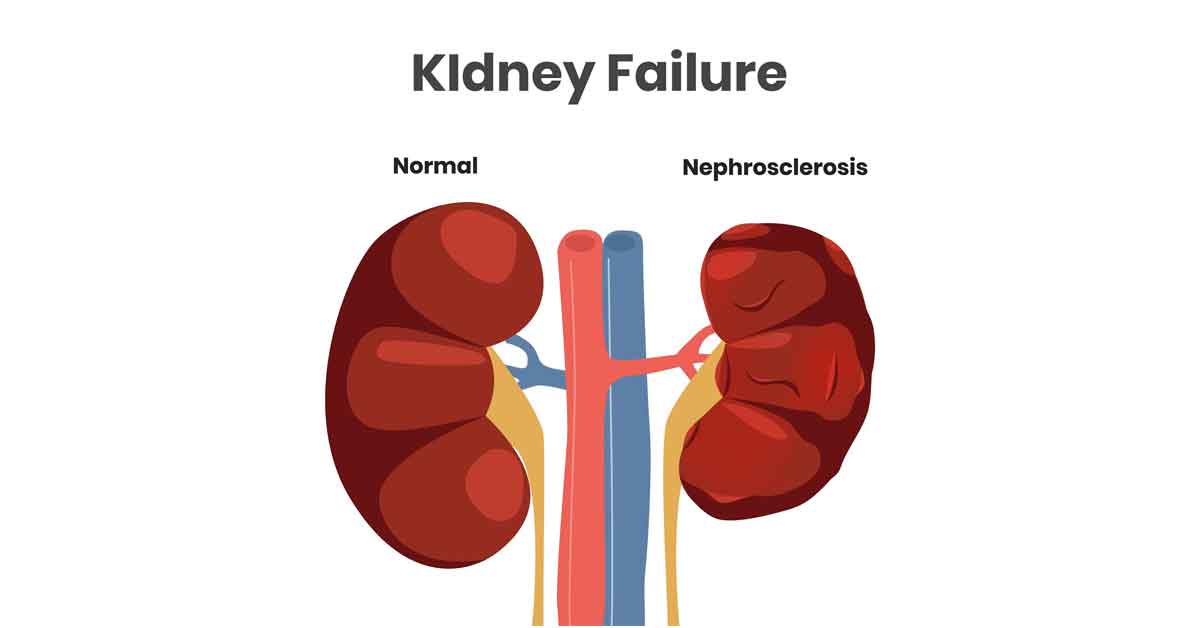Your kidneys quietly work every day to remove waste, balance fluids, and help maintain blood pressure. When they are damaged, their ability to do these jobs declines, leading to a condition known as chronic kidney disease (CKD). In many cases, kidney damage progresses slowly, which is why learning the signs and taking preventive steps is so important.
What is Kidney Damage?
Kidney damage refers to any condition that reduces the function of the kidneys. The most common long-term type is chronic kidney disease, which develops gradually over months or years. Other causes include acute kidney injury, kidney infections, or kidney stones. Risk factors like high blood pressure, diabetes, obesity, and certain medications can increase the likelihood of kidney problems.

Common Kidney Damage Symptoms
Kidney problems often don’t cause clear signs early on, but as the condition worsens, you may notice:
- Swelling in the feet, ankles, or face due to fluid buildup
- Changes in urine output or color
- Persistent fatigue or weakness
- Shortness of breath
- Itchy or very dry skin
- Loss of appetite or feeling nauseous
- Trouble concentrating or feeling confused
These kidney damage symptoms can be mistaken for other issues, which is why routine check-ups are essential, especially if you have known risk factors.

Health Tips for Kidney Protection
- Stay hydrated – Drink enough water daily, but avoid excessive intake unless advised by a doctor.
- Eat a balanced diet – Include fresh vegetables, whole grains, and lean protein, and limit processed foods high in salt.
- Control blood pressure and blood sugar – Uncontrolled levels can directly harm kidney health.
- Limit alcohol and quit smoking – Both can increase the risk of kidney disease.
- Avoid unnecessary painkillers – Overuse of certain medications like NSAIDs can damage kidneys.
- Include kidney-friendly foods – Apples, berries, cabbage, and low-potassium fruits are gentle on kidneys.
Fitness and Kidney Health
Regular exercise plays a big role in protecting your kidneys. Activities such as walking, cycling, swimming, or light jogging can help you:
- Maintain a healthy weight
- Improve blood circulation
- Reduce blood pressure and stress
- Enhance heart health, which supports kidney function
Aim for at least 30 minutes of moderate physical activity on most days. Even light stretching or yoga can improve flexibility and reduce the risk of lifestyle-related kidney issues.
Advantages of Early Detection
- Slows down kidney damage progression
- Prevents complications like heart disease and bone problems
- Allows for simpler, less expensive treatments
- Improves energy levels and overall wellbeing
Disadvantages of Ignoring Symptoms
- Increased risk of permanent kidney failure
- Need for dialysis or kidney transplant in severe cases
- Higher medical costs and longer recovery times
- Greater impact on lifestyle and diet restrictions
Practical Advice for Everyday Kidney Care
If you have high blood pressure, diabetes, or a family history of kidney disease, schedule regular kidney function tests. Monitor your diet, stay active, and pay attention to body changes like swelling or fatigue. Small lifestyle adjustments—such as reducing salt, staying hydrated, and staying active—can make a big difference in protecting kidney health.
Disclaimer
This content is for educational purposes only. It should not be taken as medical advice. If you notice any symptoms of kidney disease or have concerns about your kidney health, consult a healthcare professional for a proper diagnosis and treatment plan.


